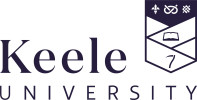© Pint of Science, 2025. All rights reserved.
Nature is perfect? No, it’s not! And neither are we. We think we are smart, well, sometimes maybe. Can we be smarter, and does that make everything less imperfect? We’ll indulge in a cocktail of spite, lying and how the mind can be made smarter to outwit smart devices.
The psychology of spite: the social behaviour we don’t like to talk about
David Gordon
(Psychologist)
The common phrase “to cut off your nose to spite your face” is a good example of spite: a behaviour where a person is willing to harm themselves to intentionally harm another. While most of us have engaged in spiteful actions at some point, these behaviours are typically seen as negative and few would own up to being overtly spiteful. So, how do psychologists measure spite and what makes us more (or less) likely to act in a spiteful manner? These questions and more will be answered about this darker side to human social behaviour.
Can we repair the brain?
Chris Adams
(Neuroscientist)
You may have heard of stem cells and neural implants as new means to repair the brain. They sound fancy but is this all hype and can any of these technologies actually achieve this holy grail? In this session, I will ask this question and provide examples of where we are and where we might go in the field. As you may know, injuries or diseases of the nervous system result in permanent and progressive damage yet what treatments there are in the clinic address the symptoms rather than truly restoring function. Therefore it is vital to find a solution, but how close are we?
The secrets of house smart devices
Fabiana Anselmo
(Computer Scientist)
Have you ever thought about how many smart devices are part of your daily routine and collecting your data? Smart technology has been facilitating our life in many different ways, especially at home (e.g. smart vacuum cleaners, smart lights and smart speakers). However, this exponential increase in the numbers of people who own these devices also increases the accumulation of e-waste all around the world. Repairing hardware is very important, but also the repair of software and the maintenance of data. And...speaking about data, do you know if your data is safe? My research explores ways to make support and repair of the software more accessible to everyone. This activity will be a journey together to get more knowledge about our house smart devices and be more independent when using them!
The psychology of lie detection
Chris Street
(Psychologist)
How can you spot a liar? Dr Chris Street, Keele Psychology’s expert on detecting lies, will explore cues to deception showing you what works and what doesn’t when trying to identify when somebody is lying. Chris will, through some fun interactive exercises, connect theory to real-world applications, taking with insights from his student textbook and research. Expand your understanding of human behaviour and sharpen your detection skills in this thought-provoking session.
Map data © OpenStreetMap contributors.
